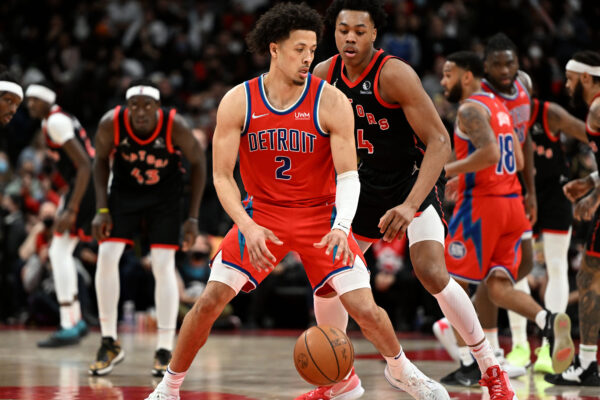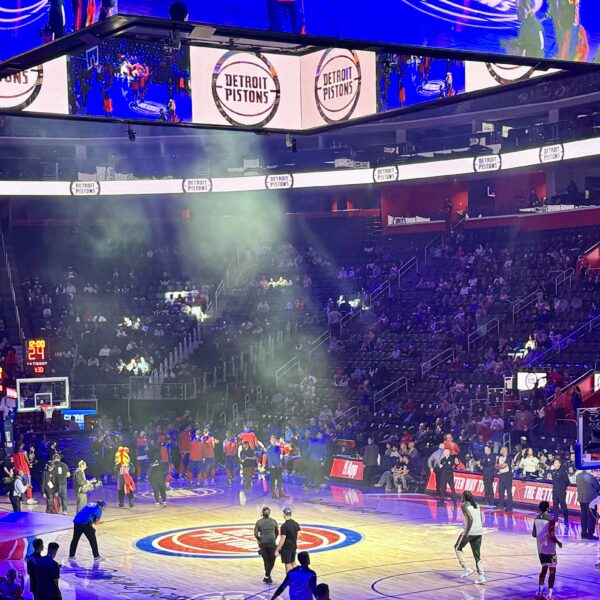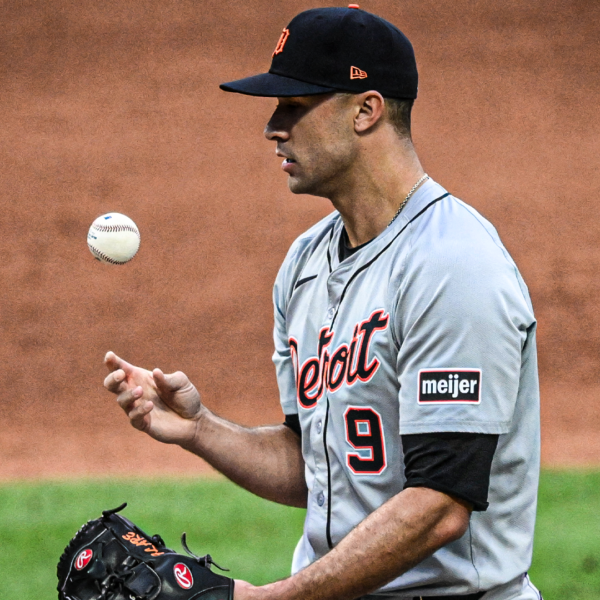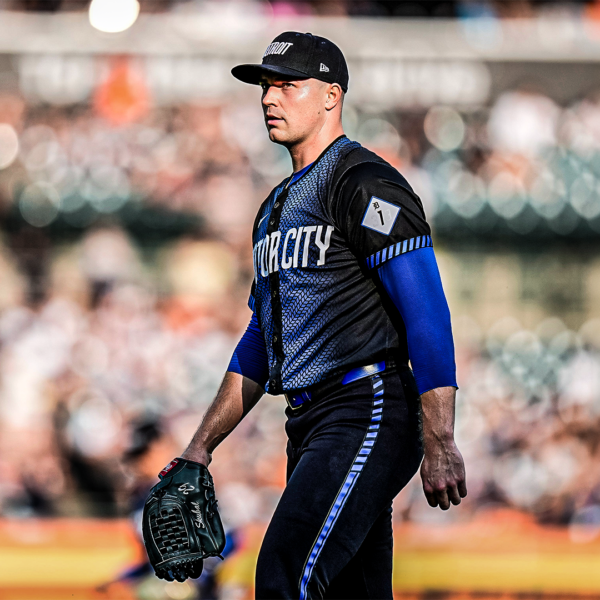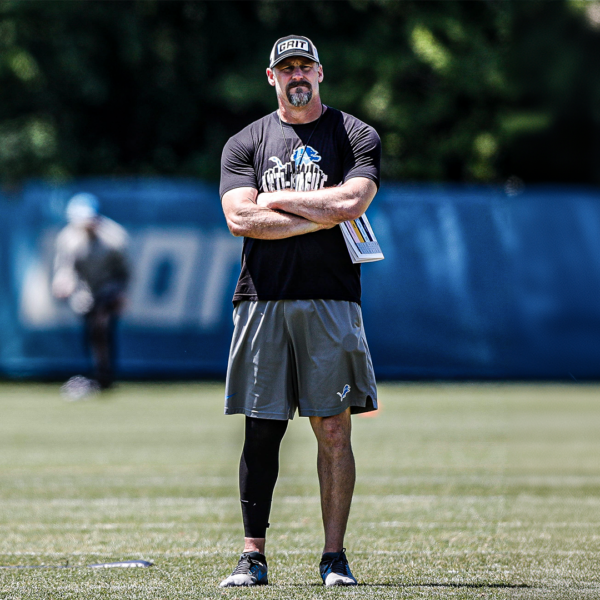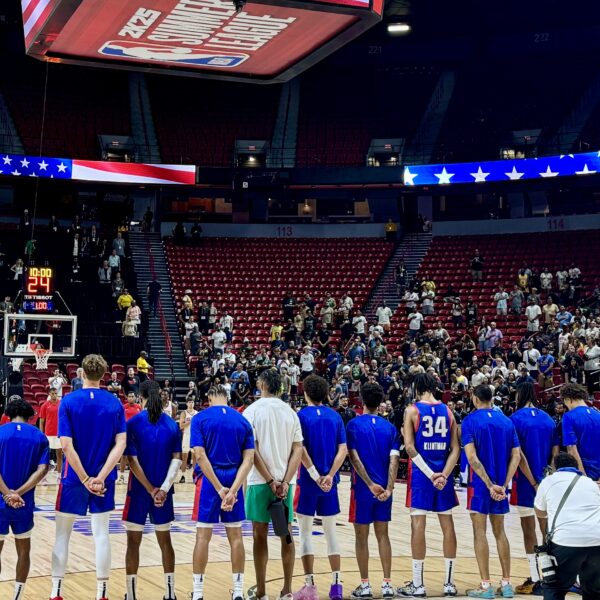The NBA Rookie of the Year race is coming down to the wire. Out of a strong 2021 draft class, Evan Mobley, Scottie Barnes and Cade Cunningham emerged as the three favorites down the stretch of the NBA season. Mobley started off hot and quickly took the mantle as the favorite to win the award. Throughout the season, Barnes and Cunningham have both closed the gap on Mobley’s lead. As they stand today, Mobley’s betting odds to win the Rookie of the Year award stand at -650. Barnes is second standing at +500 odds. Cunningham rounds out the three at +600. The fourth-best odds go to Josh Giddey who is far back at +1800.
Barnes and Mobley both have team success in their favor for the Rookie of the Year odds. Currently, the Cleveland Cavaliers and the Toronto Raptors are sitting at sixth and seventh in the Eastern Conference standings. The Cavs in particular have been the Cinderella story of the 2021-22 season. Both players have been key contributors to their team’s success. Mobley is the third star behind Darius Garland and Jarett Allen. Barnes is part of the most heavily used starting lineup in the NBA.
Cunningham is not enjoying the same team success as Barnes and Mobley. The Detroit Pistons hold the third-worst record in the entire NBA. Recently, the team has played some of the best basketball it has seen in years, including a three-game win streak. However, it is clear Detroit is still in the middle of the restoration process.
Team success is what propelled Mobley and Barnes in front of Cunningham in the Rookie of the Year odds. When actual performance on the court is brought into the equation, it is no contest; Cade Cunningham is the best rookie this season. The numbers back it up.
Rookie of the Year: Traditional Box Score
It does not take a genius to see Cunningham’s box scores are better than Mobley’s and Barnes’.
Cunningham leads all rookies in points per game (16.9). Barnes (15.3) and Mobley (15.1) are third and fifth respectively among rookies this season. While Josh Giddey holds the lead in assists per game, Cunningham ranks second (5.3). Barnes (3.4) and Mobley (2.6) are fourth and ninth. Mobley and Barnes hold the advantage in rebounds per game, Mobley (8.3) is first, Barnes (7.6) is third. Cunningham rounds out at fourth (5.9).
Cunningham already has two triple-doubles in his career, and he has come close to more. Mobley and Barnes have combined for a whopping zero.
Working against Cunningham is his efficiency and turnover issues. Cunningham attempts more shots than any other rookie, but he only connects on 40.5 percent of those attempts. Barnes’ 49.1 percent and Mobley’s 50.3 percent from the floor both come while being top six among rookies in attempts per game. Cunningham leads all rookies with 3.5 turnovers per game. It makes sense for how often the ball is in his hands compared to his inexperience, but it does not look good on the scoresheet.
These deficiencies in Cunningham’s traditional stats are put into perspective when you look at his advanced numbers.
Rookie of the Year: Advanced stats

Feb 19, 2022; Cleveland, OH, USA; Team Rookies player Cade Cunningham (2) and Team Rookies player Scottie Barnes (4) celebrate during the Skills Challenge during the 2022 NBA All-Star Saturday Night at Rocket Mortgage Field House. Mandatory Credit: Kyle Terada-USA TODAY Sports
Cunningham has the highest usage rate of any rookie in the 2021 class. 26.9 percent of Detroit’s plays utilized Cunningham while he was on the floor. Barnes (18.7 percent) and Mobley (20 percent) do not even crack the top 15 among rookies. Cunningham is also doubled 12.8 times per game, first among rookies. Heavy usage, inexperience and being the most double-teamed rookie all make Cunningham’s turnover issues more understandable. For all of Cunningham’s turnover issues, he still has a comparable assist to turnover ratio at 1.52 to Barnes (1.77) and Mobley (1.31).
Cunningham’s advanced stats continue to favor his case for Rookie of the Year. He is second in Assist percentage among rookies, trailing only Giddey. When Cunningham is on the floor, 27 percent of his teammates’ field goals come off an assist from him. Barnes (14.6 percent) and Mobley (11.7 percent) do not play nearly as big a role in playmaking as Cunningham does for Detroit.
Cunningham has the head-to-head advantage
So far this season, Cunningham and the Pistons are 2-1 against the Cavaliers and 3-0 against the Raptors. When Detroit matches up with Cleveland on March 19, Cunningham will have the chance to finish the season 6-1 against Mobley and Barnes.
In their head-to-head matchups, Cunningham and Mobley have both performed well. The Pistons rookie is averaging 15 points, 7.3 rebounds and 6.3 assists in his three games against the Cavaliers. One of his two career triple-doubles came in Detroit’s 115-105 victory over the Cavaliers in their second matchup of the season.
Mobley has been consistent against Detroit, as he has throughout the year. The big man is averaging 15.3 points, eight rebounds and 3.3 blocks against the Pistons. As solid as Mobley has been in Cleveland’s matchups with Detroit, Cunningham has consistently stolen the spotlight.
Against the Raptors, Cunningham has played some of his best basketball. The 20-year-old guard is averaging 16.7 points, 7.3 rebounds and 4.7 assists against Toronto. Cunningham is also shooting a more efficient 46.7 percent from the floor in three games against the Raptors. He scored 22 points, collected 12 rebounds and dished out five assists in Detroit’s final matchup with Toronto, a 108-106 victory.
Barnes has been lackluster in three games against Detroit. He is averaging 13.3 points and 7.7 rebounds. However, Barnes has struggled with efficiency sinking only 41.7 percent of his shots, compared to his season average of 49.1 percent.
Cunningham has beaten the best of his class in head-to-head matchups, and he has played a major role in those wins as well.
The numbers back up Cunningham’s case
Mobley and Barnes got drafted and became rising stars for their teams. Cunningham came to Detroit and became the next franchise cornerstone. Cunningham is the most valuable rookie in this class. Mobley and Barnes are key players for Cleveland and Toronto, Cunningham is the player for Detroit.
It is not that Cunningham is just recently playing at a high level, he has just taken it to another level. Since the All-Star break, he’s averaging 22.3 points, 7.5 rebounds and six assists. He is outperforming his fellow rookies as the season comes to a close.
If Cunningham can continue performing at the same level he has reached since the All-Star break, there is little doubt he can beat out Barnes in Rookie of the Year voting. Mobley is a different story.
This race will likely come down to Cunningham and Mobley. The success of the Cavaliers has thrust Mobley into the national spotlight. Mobley playing an important role on a playoff team has overshadowed Cunningham changing the trajectory of an entire franchise over the course of a season.
Rookie of the Year is an individual award, not a team award. It is not like Most Valuable Player, where team success has historically played a heavy factor in who wins. The main case for Mobley and Barnes is team success. If Rookie of the Year is awarded as it has historically, it has to go to Cunningham. He has had the best individual performance of any rookie in his class.
(Featured Image Credit: Dan Hamilton-USA TODAY Sports)

